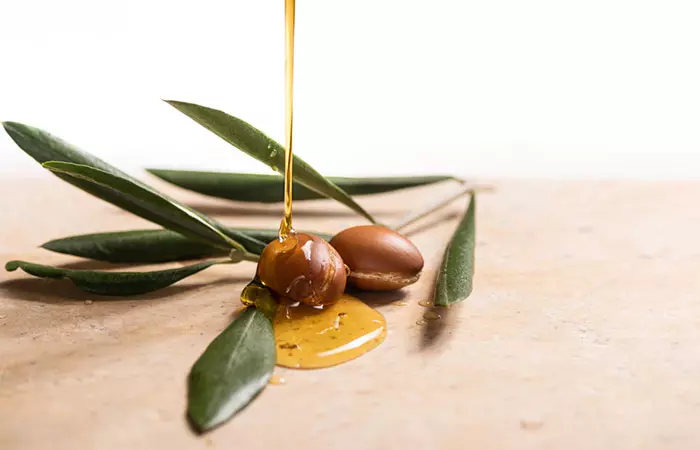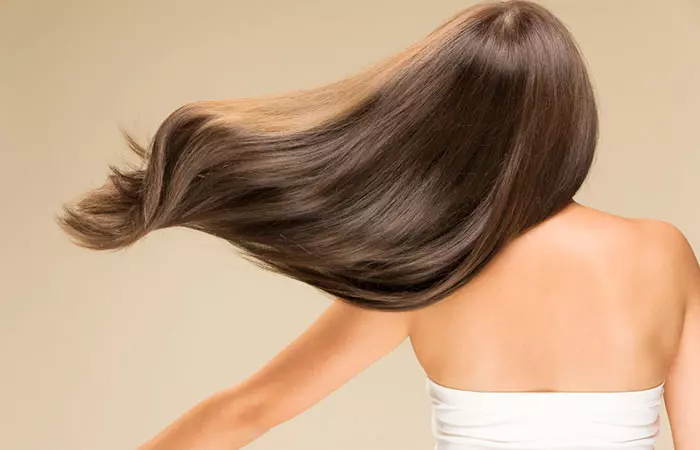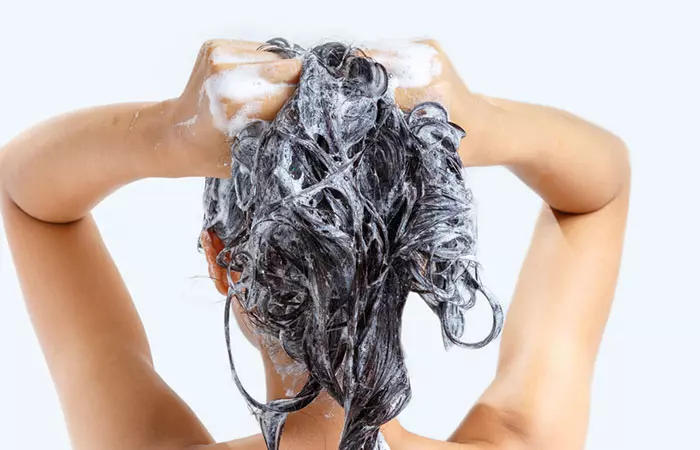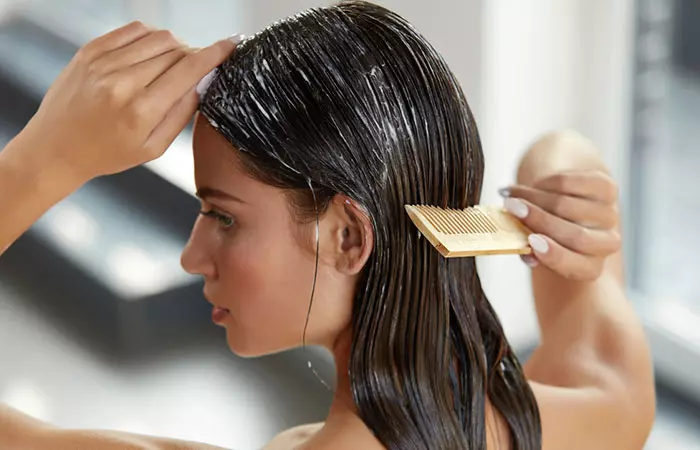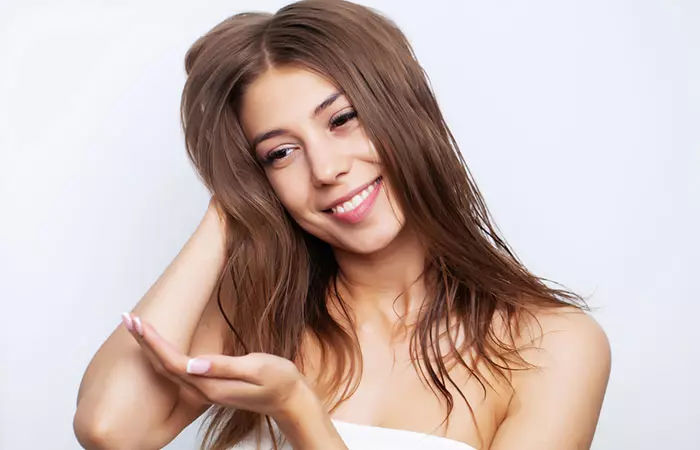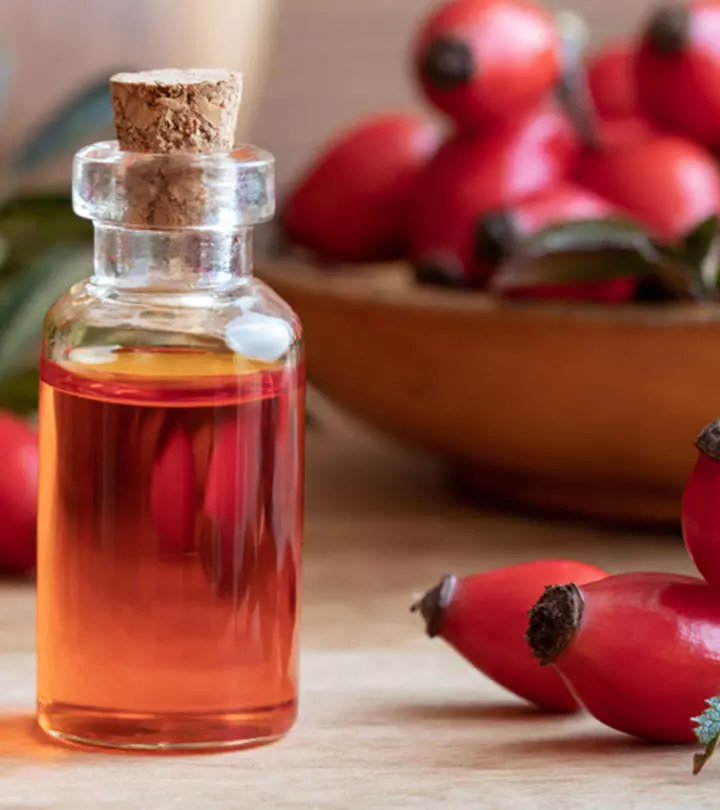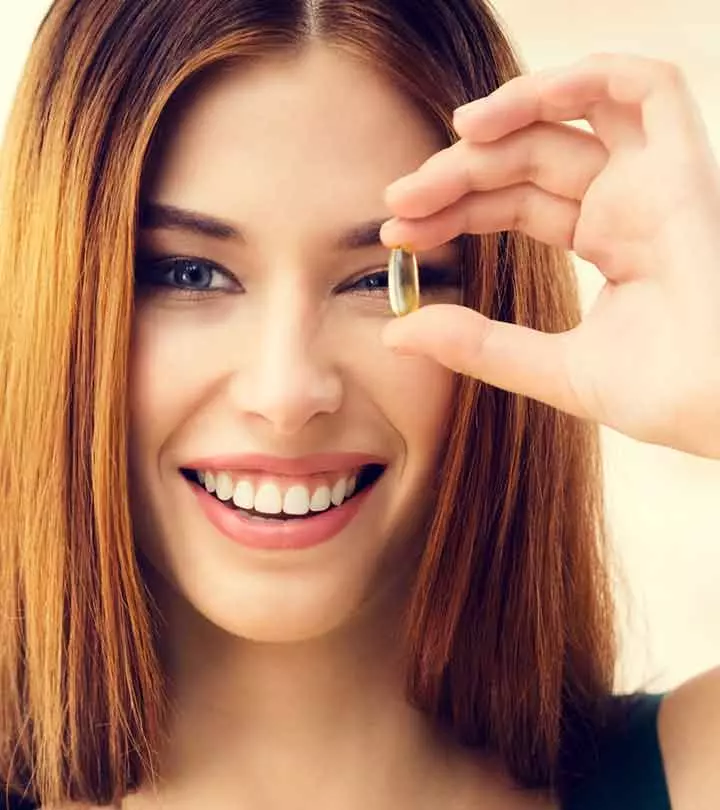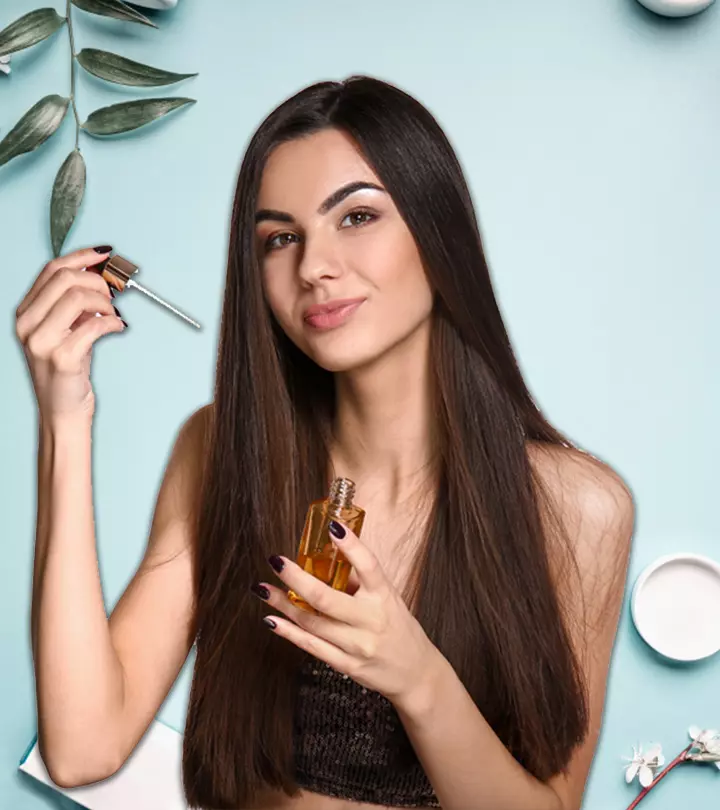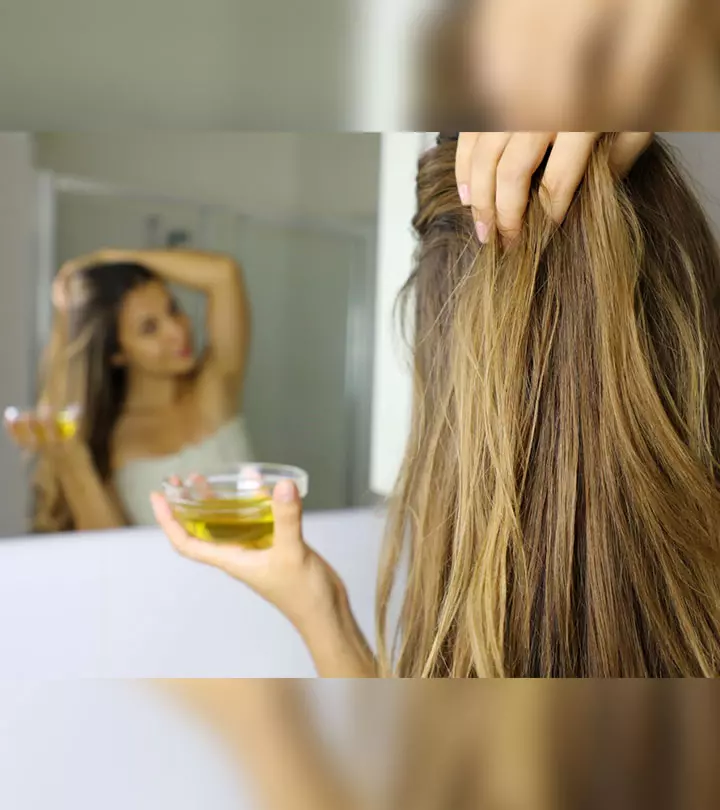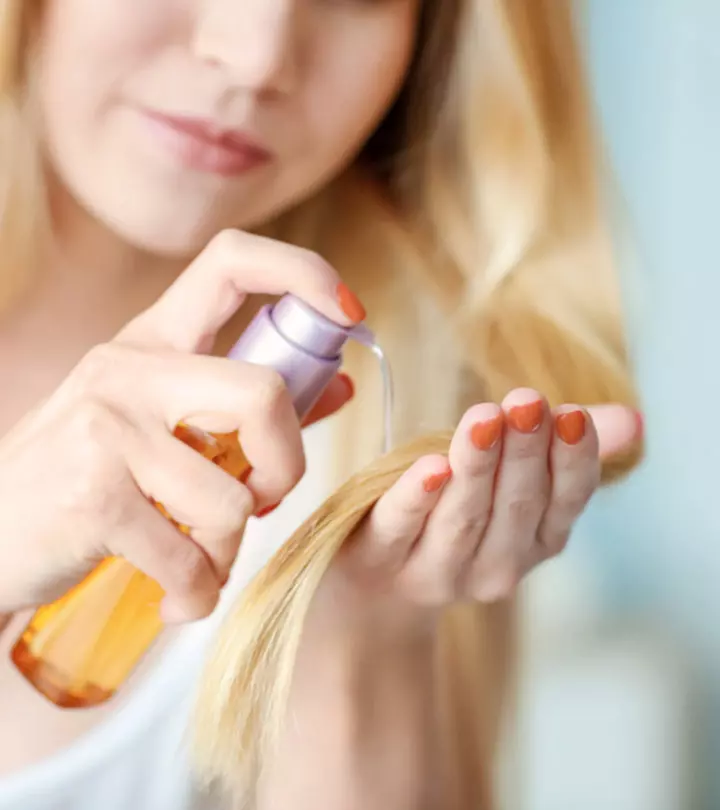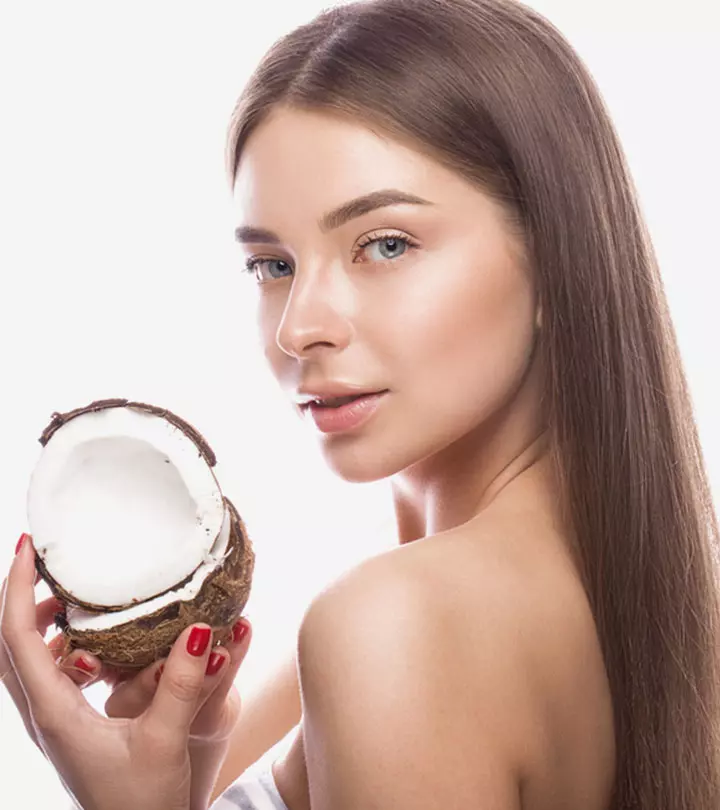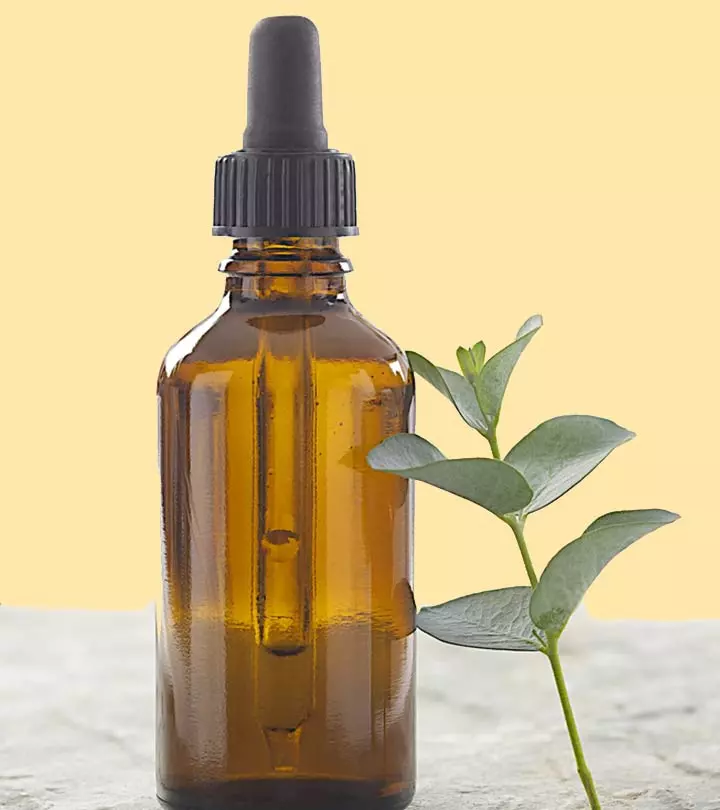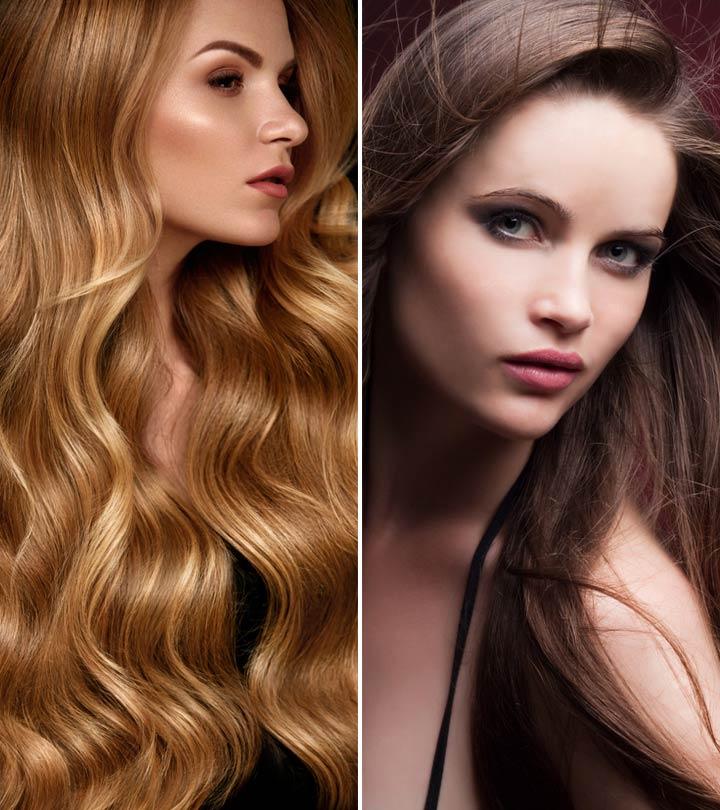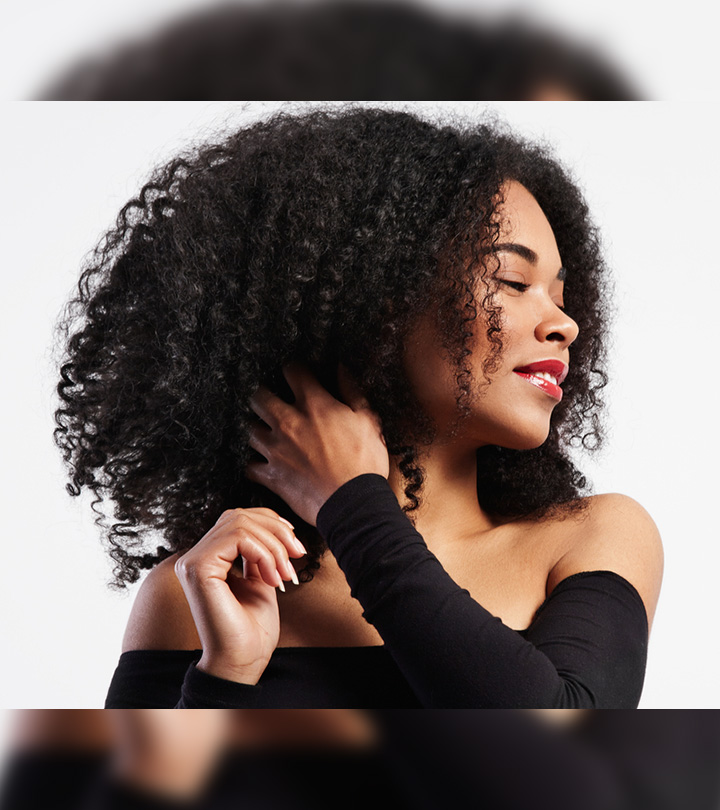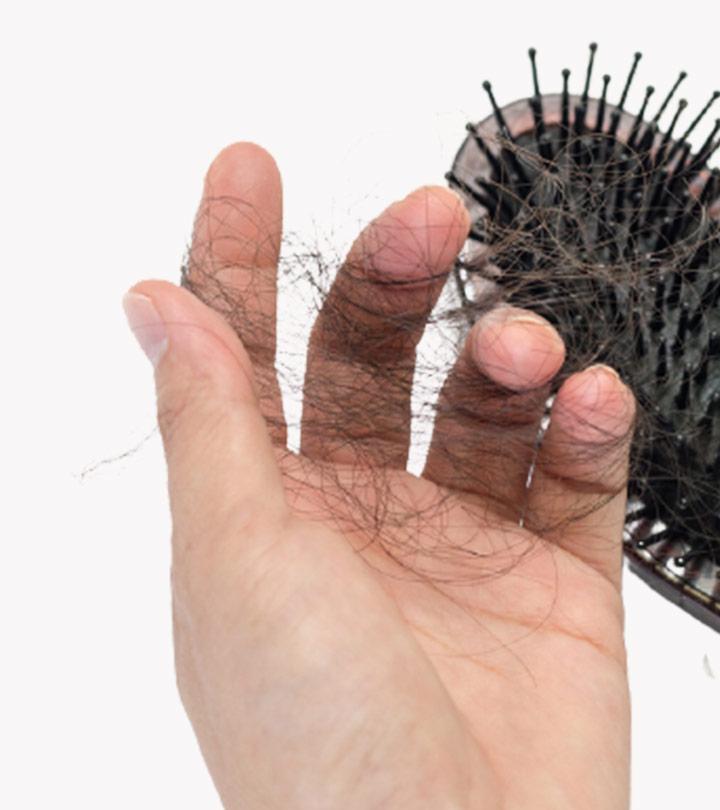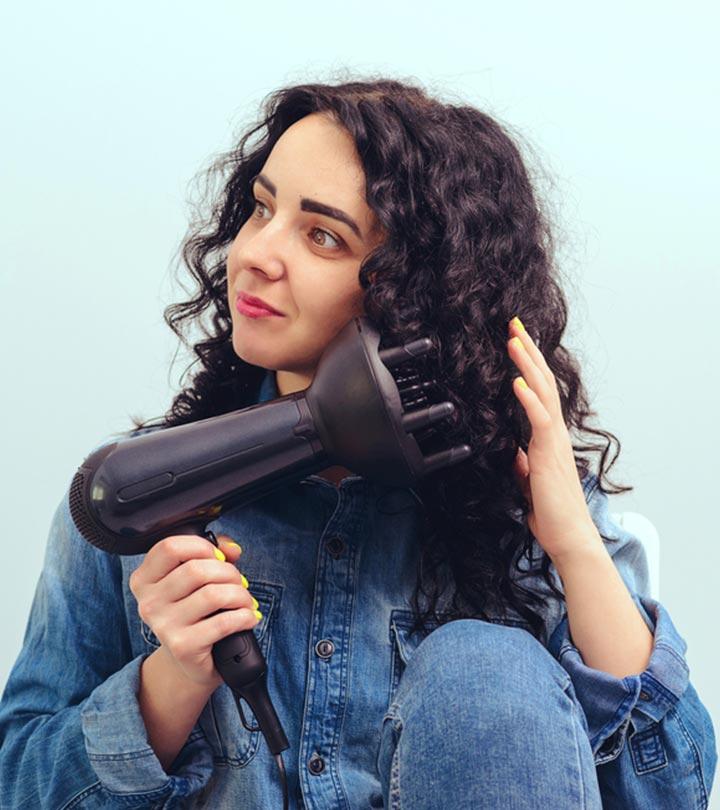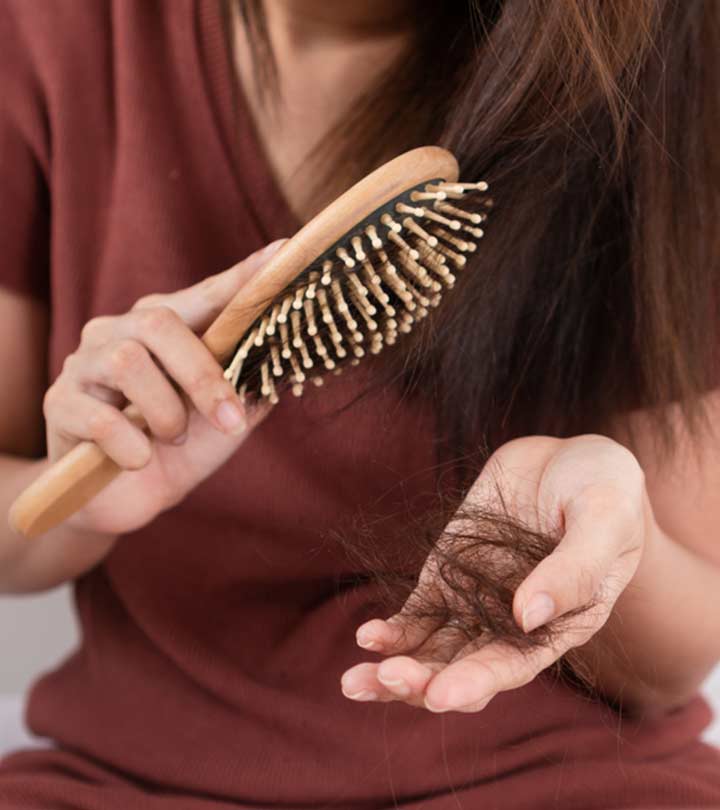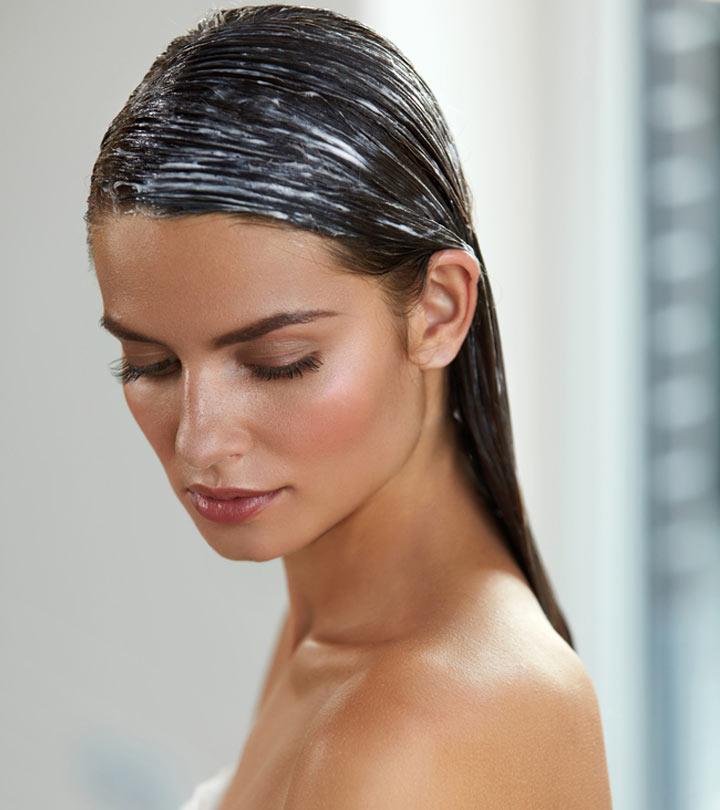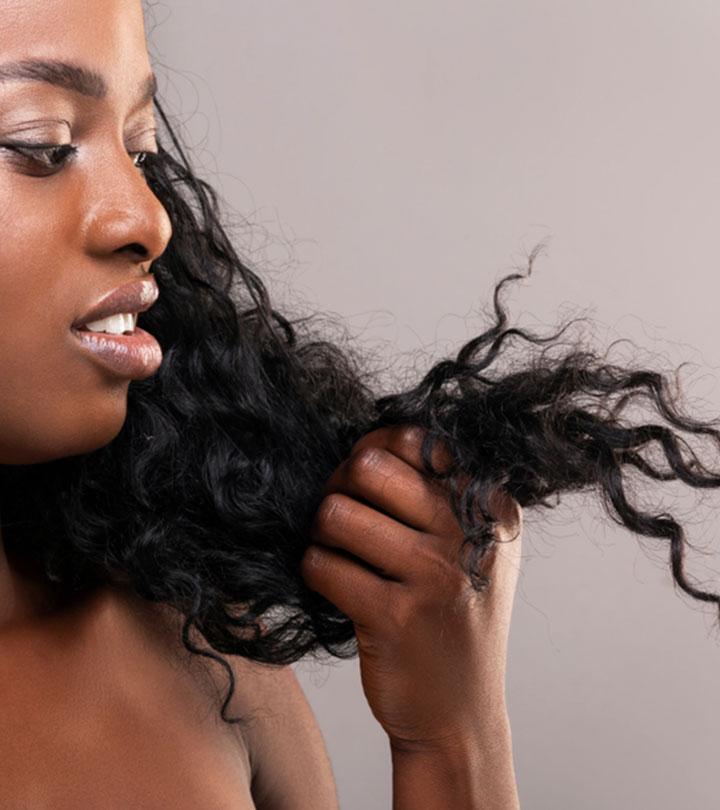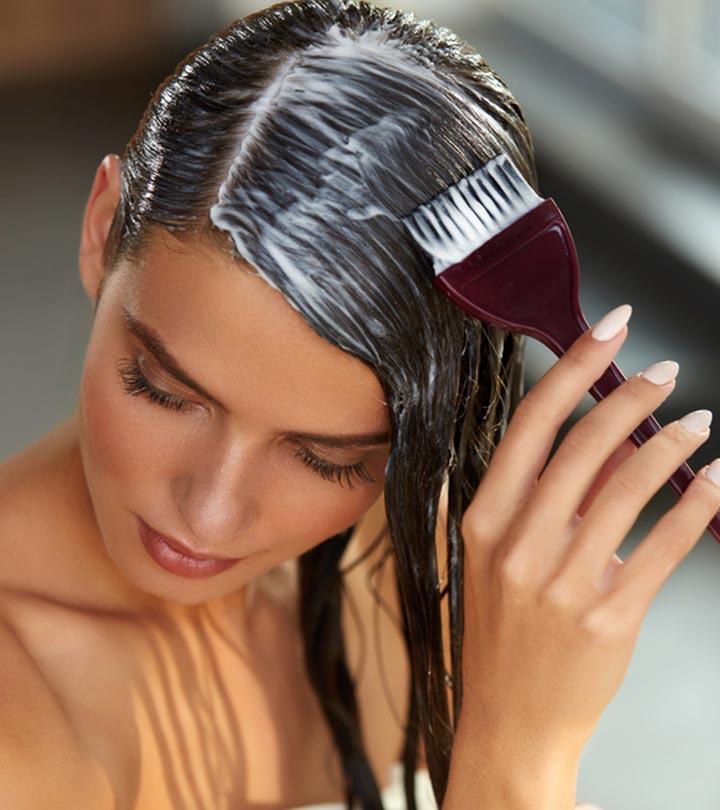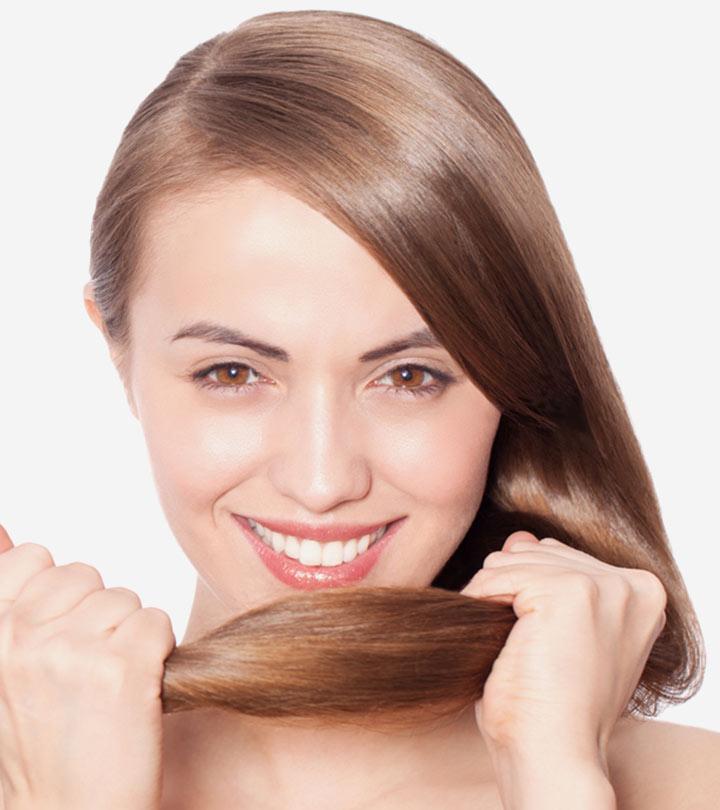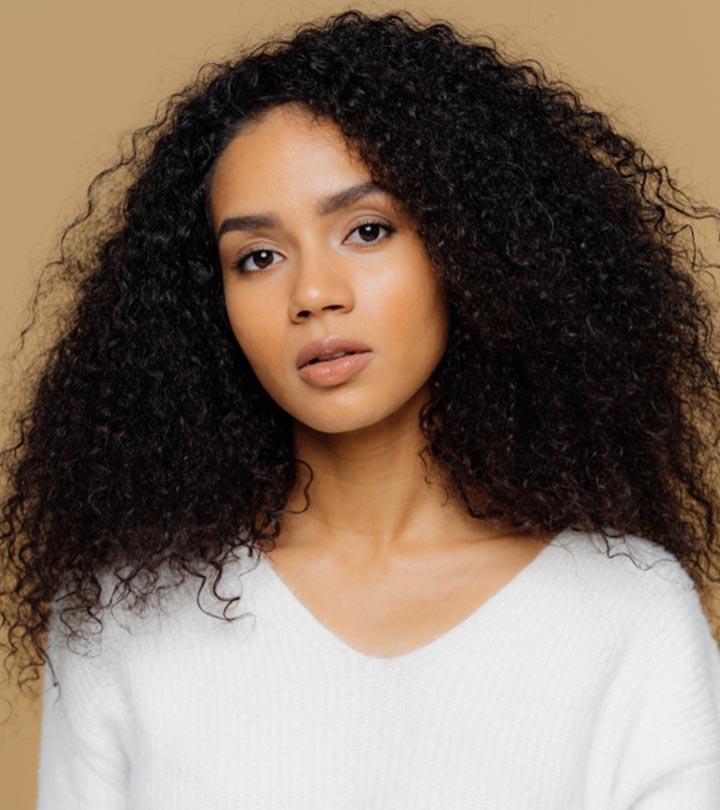How To Use Argan Oil For Hair Growth
Nourish your hair and soothe your scalp with the goodness of chemical-free natural oil.
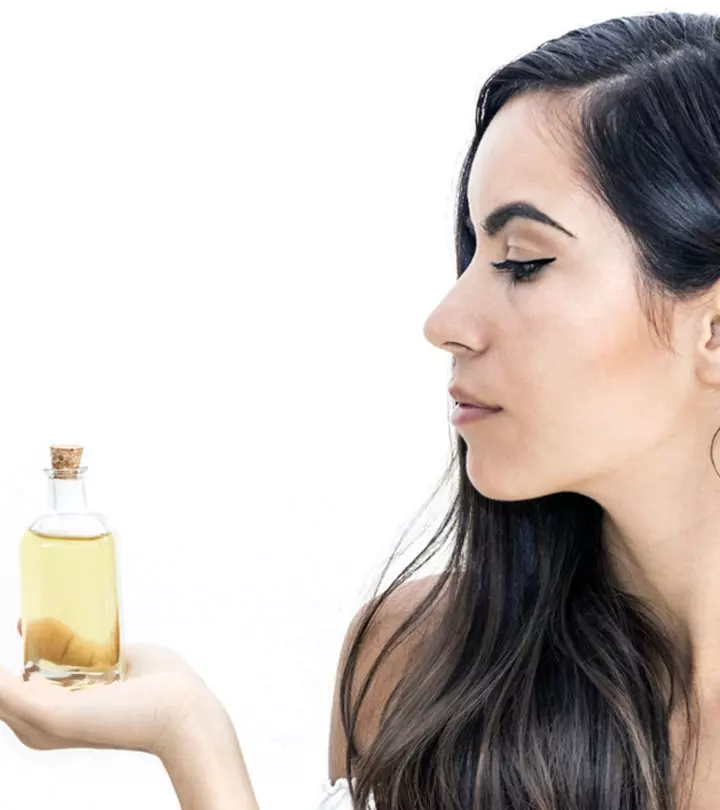
Image: Shutterstock
You must try argan oil, an essential oil for hair growth if you have not already! This miracle oil is extracted from the argan trees native to the Moroccan region. Its extraction is a tedious and expensive process, so no wonder it is dubbed as “Liquid Gold”. The hair care market is flooded with products with argan oil due to its nutrient-rich profile. Anecdotal evidence claims that it can improve scalp health and boost hair growth, overall it’s a scalp therapy. But, is there any truth to it? Or is it just another marketing trend? We suggest you learn more about the benefits of using argan oil for your hair right here. Scroll down.
 Know Your Ingredient: Argan Oil
Know Your Ingredient: Argan OilWhat Is It?
Oil extracted from the kernels of the argan tree.
What Are Its Benefits?
Argan oil moisturizes the scalp, forms a protective layer and makes hair smooth and shiny, tames frizz, strengthens hair shafts, protects from color damage, and rejuvenates colored hair.
Who Can Use It?
Suitable for all hair types.
How Often?
2 to 3 times a week is enough for strong and conditioned hair.
Caution
Individuals who are allergic to tree nuts should avoid using argan oil.
In This Article
What Makes Argan Oil Good For Hair?
Argan oil consists of vitamin E, sterols, polyphenols, ferulic acid, carotenoids, squalene, and essential fatty acids (1). They are all excellent emollients that help to condition and moisturize hair.
- Vitamin E contains tocopherols that have good antioxidant properties.
- The essential fatty acids – oleic acid, linoleic acid, alpha-linoleic acid, palmitic acid, myristic acid, and stearidonic acid – have antioxidant properties. These antioxidant properties help reduce free radicals and eliminate oxidative stressi XAn imbalance between the free radicals and antioxidants in the body, which can increase the risk of gray hair and hair loss. that causes hair fall. They also fight against cell damage and premature aging.
- It also contains beta-carotene and carotenoids that protect the hair from UV radiation and free radical damage (2).
- It contains polyphenols that have antioxidant and anti-inflammatory properties to improve scalp and hair health (1).
- Ferulic acid is an antioxidant that protects the hair from UV damage and photoagingi XAn aging process characterized by loss of color and brittle and dull hair due to prolonged exposure to solar radiation. (3).
- Squalene, also naturally found in sebum, helps cell growth. It also has antioxidant, detoxifying, and emollient properties (4). Thus, it can keep your hair moisturized and protected from free radical damage.
- Sterols are moisture retainers, which may help keep hair nourished and hydrated.
Discussed below are the benefits of using argan oil for the hair.
Benefits of Argan Oil For Hair
- Argan oil improves skin hydration and maintains its water-holding capacity (5). It moisturizes the hair and scalp and forms a protective layer around the hair.
- Argan oil imparts shine and smoothness to hair and tames frizz.
- Argan oil prevents hair from becoming brittle. It promotes elasticity, thereby strengthening hair shafts (1).
- Argan oil can protect hair from hair coloring damage. A study showed that argan oil helped colored hair rejuvenation (6).
- Argan oil’s protective seal also rescues hair from damage by styling tools and chemicals (7).
- Argan oil contains the needed nutrients, making it a rejuvenating oil that helps rejuvenate damaged hair.
- Argan oil protects hair porosity. Hair often absorbs water easily, which leaves the shafts open to hair damage. Argan oil increases the hair’s hydrophobicityi XThe physical property of a molecule that repels water, reducing surface friction of your hair and preventing it from further damage. (7).
- Argan oil penetrates the hair’s cortex and nourishes the hair shaft. It also repairs any hair damage from within.
- Argan oil contains vitamin E, which helps reduce lipid peroxidation (8). Lipid peroxidation is the process of deterioration of lipids due to the oxidative free radicals. Vitamin E helps reduce oxidative stress, which is one of the main causes of hair fall and hair damage.
- Argan oil has antioxidant properties that help protect the hair from heat and sun damage.
- Argan oil, on consistent usage, reduces and prevents hair loss.
- Argan oil has antimicrobial and antibacterial properties (9). These properties suggest that it can improve scalp health and prevent fungal infections like dandruff.
- Argan oil helps increase the production of keratin, stimulating hair growth. It also helps extend the life of hair follicles.
Doro Cubillo, a YouTuber, shared her experience of using argan oil on hair, “I am not kidding when I said that I’m so impressed with these results because in only eight hours argan oil made my hair a little bit more fuller than before. Hair looks super silky as you can see, and the most impressive thing is that my hair feels extremely soft (i).”
Now that we are aware of how argan oil benefits hair health, let us take a look at a few ways to incorporate argan oil into your hair care routine.
How To Use Argan Oil For Hair
1. Argan Oil Shampoo
Squeeze a coin-sized amount of the shampoo on your palms and rub it into your scalp and along the length of your hair. Work up a lather and then rinse the shampoo with cool water. Use the shampoo once in two days to nourish and improve the appearance of your hair.
 Quick Tip
Quick Tip2. Argan Oil Leave-In Conditioner
This conditioning oil is ideal for hair growth and hair rejuvenation. You can use pure argan oil as a leave-in conditioner. It is effective and chemical-free.
Take in a few drops of argan oil in your palm and rub your palms together. Finger it through your washed hair gently and massage the scalp thoroughly.
3. Argan Oil Mask
You can also use pure argan oil as a mask for hair growth by leaving it overnight on your hair.
Take a liberal amount of oil in a bowl and warm it. Massage oil into your scalp, hair, and tips. Begin from the hairline and work your way backward, covering the sides. Continue the massage for 15 minutes.
Wrap your hair with a towel and leave it on overnight, allowing the oil to soak into your hair and scalp thoroughly. Wash your hair in the morning with a regular shampoo.
Leaving the hair mask overnight helps your hair absorb all the nutrients in argan oil. It becomes incredibly smooth, soft, and shiny.
4. Argan Oil And Castor Oil Mask
Castor oil works well with argan oil, and both have similar benefits. Castor oil helps condition the hair and repairs hair damage (10). It prevents split ends and hair loss. It also helps prevent dandruff. Since both oils are conditioners, this is an excellent hydrating mask.
Ingredients
- 1 tablespoon of castor oil
- 2 tablespoons of argan oil
- 50-100 ml of coconut milk (depending on the length and thickness of your hair)
Method
- Mix all the ingredients well in a container and apply the mask thoroughly to your hair and scalp.
- Leave it on overnight and rinse it off in the morning with shampoo.
5. Argan Oil And Coconut Oil Mask
Coconut oil and argan oil is another ideal combination for hair growth. Both oils can penetrate the hair shaft and nourish from within (11). They can repair damage and protect it from UV radiation.
Ingredients
- 2 tablespoons coconut oil
- 10 drops of argan oil
- Plastic comb
- Hair band
Method
- Mix the argan and coconut oil and keep it aside.
- Comb your hair.
- Apply the oil mixture to your hair and scalp. Concentrate more on the lower half of the hair.
- After applying the oil throughout your hair, comb your hair again to distribute the oil mixture evenly.
- Tie your hair up in a knot and wear a hair cap.
- Leave it on for 30 minutes and wash off. You can even leave it overnight.
- Shampoo your hair the next morning.
 Quick Tip
Quick TipWhile argan oil is widely acclaimed for its beneficial properties, it’s essential to be aware of its potential disadvantages too. Learn more in the next section.
What Are The Disadvantages Of Using Argan Oil?
- Overuse: Excessive application can lead to greasy, weighed-down hair and diminish hair volume and manageability.
- Cost: Pure, high-quality argan oil can be pricey and may not be affordable to all.
- Sensitivity: Some individuals may experience allergic reactions or irritation following the use of the oil.
- Silicone Additives: Some argan oil products may contain added silicones that may offer temporary shine but may cause product buildup over time.
- Styling Challenges: Heavy argan oil might not be suitable for fine or thin hair as it can make it appear limp.
Infographic: 5 Ways To Use Argan Oil For Your Hair
Argan oil moisturizes the hair and scalp, forms a protective layer around the hair, imparts shine and smoothness, and tames frizz. It also has antimicrobial and antibacterial properties that can improve scalp health and prevent fungal infections like dandruff. Check out the below infographic to understand how you can use argan oil to rejuvenate your damaged hair.

Illustration: StyleCraze Design Team
Argan oil, a conditioning oil contains emollients that thoroughly moisturize and condition your hair and scalp. It contains antioxidant properties which prevent hair damage, premature aging, and hair fall. This oil has anti-inflammatory properties, which improve scalp and hair health. It increases shine, tames frizz, improves hair elasticity, protects hair strands, improves hair, repairs damaged hair, prevents fungal infections, increases keratin production, and many more. Follow the methods mentioned above to effectively use argan oil for hair growth and other hair care issues.
Frequently Asked Questions
How often do I use argan oil?
Use argan oil regularly for hair fortification. Use it 2-3 times a week to repair and condition your hair.
Do I have to dilute argan oil before using it?
No, you need not dilute argan oil before usage.
Is argan oil better on wet or dry hair?
Either is fine. Argan oil works wonders at taming frizz when applied to dry hair, while it works as a heat protectant when applied to damp hair.
Can too much argan oil damage hair?
Yes. Excess argan oil may weigh your hair down and make it look greasy. The excess oil may clog the follicles, trapping dirt and sebum, leading to hair fall.
Which is better for hair growth, argan oil or castor oil?
While neither oil has a clear advantage over the other, both may help keep your scalp healthy and boost healthy hair growth.
Is coconut oil better than argan oil?
While both oils are nourishing and equally beneficial to your hair, coconut oil has a deeper penetrating effects and may prevent hair breakage and boost scalp health.
Key Takeaways
- Argan oil contains vitamin E and antioxidants that help combat oxidative stress-related hair fall.
- It imparts shine and smoothness to hair and reduces dandruff.
- Argan oil can be massaged directly on the scalp or used in the form of shampoos, conditioners, or hair masks.
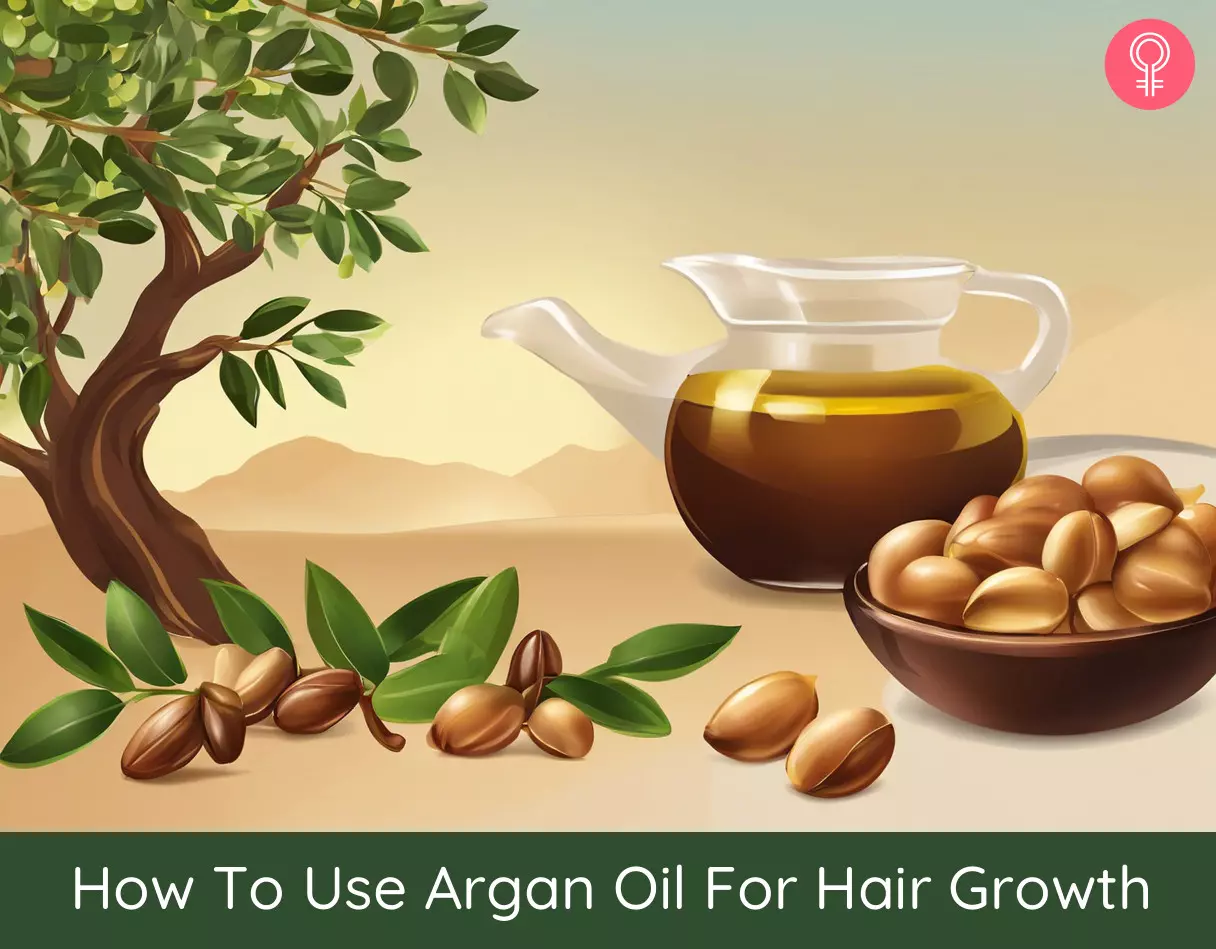
Image: Stable Diffusion/StyleCraze Design Team
References
Articles on StyleCraze are backed by verified information from peer-reviewed and academic research papers, reputed organizations, research institutions, and medical associations to ensure accuracy and relevance. Read our editorial policy to learn more.
- Monfalouti, Hanae El, et al. “Therapeutic potential of argan oil: a review.” Journal of Pharmacy and Pharmacology12 (2010): 1669-1675.
https://onlinelibrary.wiley.com/doi/full/10.1111/j.2042-7158.2010.01190.x - Stahl, Wilhelm, and Helmut Sies. “β-Carotene and other carotenoids in protection from sunlight.” The American journal of clinical nutrition5 (2012): 1179S-1184S.
https://academic.oup.com/ajcn/article/96/5/1179S/4577133 - Lin, Fu-Hsiung et al. “Ferulic acid stabilizes a solution of vitamins C and E and doubles its photoprotection of skin.” The Journal of investigative dermatology 125,4 (2005): 826-32.
https://pubmed.ncbi.nlm.nih.gov/16185284/ - Kim, Se-Kwon, and Fatih Karadeniz. “Biological importance and applications of squalene and squalane.” Advances in food and nutrition research 65 (2012): 223-33.
https://pubmed.ncbi.nlm.nih.gov/22361190/ - Boucetta, Kenza Qiraouani et al. “Skin hydration in postmenopausal women: argan oil benefit with oral and/or topical use.” Przeglad menopauzalny = Menopause review 13,5 (2014): 280-8.
https://pubmed.ncbi.nlm.nih.gov/26327867/ - Faria, Pamella Mello, et al. “Hair protective effect of argan oil (Argania spinosa kernel oil) and cupuassu butter (Theobroma grandiflorum seed butter) post treatment with hair dye.” Journal of Cosmetics, Dermatological Sciences and Applications03 (2013): 40.
https://www.researchgate.net/publication/273687487_Hair_Protective_Effect_of_Argan_Oil_Argania_spinosa_Kernel_Oil_and_Cupuassu_Butter_Theobroma_grandiflorum_Seed_Butter_Post_Treatment_with_Hair_Dye - Gavazzoni Dias, Maria Fernanda Reis. “Hair cosmetics: an overview.” International journal of trichology 7,1 (2015): 2-15.
https://www.ncbi.nlm.nih.gov/pmc/articles/PMC4387693/ - Almohanna, Hind M et al. “The Role of Vitamins and Minerals in Hair Loss: A Review.” Dermatology and therapy 9,1 (2019): 51-70.
https://www.ncbi.nlm.nih.gov/pmc/articles/PMC6380979/ - Lall, Namrita, et al. “The Anti-proliferative and Anti-bacterial Activity of Argan oil and Crude Saponin Extract from Argania spinosa (L.) Skeels.” Pharmacognosy Journal1 (2019).
https://phcogj.com/sites/default/files/PharmacognJ-11-1-26.pdf - Zaid, Abdel Naser et al. “Ethnopharmacological survey of home remedies used for treatment of hair and scalp and their methods of preparation in the West Bank-Palestine.” BMC complementary and alternative medicine 17,1 355.
https://www.ncbi.nlm.nih.gov/pmc/articles/PMC5499037/ - Rele, Aarti S, and R B Mohile. “Effect of mineral oil, sunflower oil, and coconut oil on prevention of hair damage.” Journal of cosmetic science 54,2 (2003): 175-92.
https://pubmed.ncbi.nlm.nih.gov/12715094/





